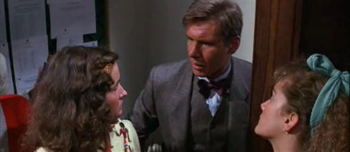
Image via Wikipedia
Elaine Showalter just doesn’t know what she’s talking about:
Q. You say a literary history has to make judgments. Give us an example of whom you see as overrated, whom underrated?
Overrated: Gertrude Stein. She played an important role in the development of modernism, but she played it for men. And she is just not readable. She became viewed as a “sister”: That doesn’t sanctify her work. We can criticize it.
I look with a critical eye at contemporary poetry, too. There are a great many talented woman poets today, but I don’t think any of them measure up to a Sylvia Plath or Adrienne Rich. I don’t feel any male poets do either.
You know, if you’re willing to write off contemporary poetry by women, then yes, it’s a lot easier to say that Stein’s development of modernist literature was only for men. And I think it’s ridiculous for a professional literary critic, even an old, cantankerous one, to write off a major writer for not being “readable” and dismiss serious scholarship about her writing as motivated by “sisterhood.” Because what it does it allows you to take Stein down a peg without having to similarly discount Joyce, Beckett, Faulkner, Celan, or any of the “unreadable” men who took on the writing of language as powerfully as she did.
Gertrude Stein stands at the front of every major American literary movement of the 20th century (and plenty of the European ones too). And it’s not just the crazy experimental ones — the minimalist-realist school of Hemingway and Carver, the creative-critical modes of a lot of our best thinkers. If you want to be a serious reader of literature, you have got to grapple with Stein — at the very least with Tender Buttons and The Autobiography of Alice B. Toklas, which is as good and as readable a novel about literature as you’re ever going to find.
